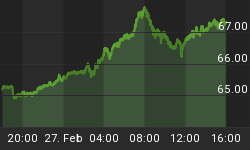Earlier this week, someone reportedly paid $215,000 for a 126-parcel estate. It sounds like a steal, except in terms of “location, location, location”, which in this case is … virtual, and gives new meaning to the idea of cryptocurrency’s use in real estate.
Welcome to Decentraland, an Ethereum-based VR platform that now allows users to tap into a borderless peer-to-peer cryptocurrency-lending network called Ripio Credit Network (RCN).
In Decentraland, space is finite and divided into parcels that are a virtual 10-square meters.
In recent auctions, users paid over $28 million to secure their own plots.
Though it’s selling virtual land however, the application hasn’t even fully launched. It’s still working on creating the infrastructure for its 3D virtual world, and the deal is now being sweetened by crypto mortgages that allow users to get in on land before the … rush.
“Decentraland is dedicated to making the exciting new world of virtual reality decentralized—ruled by open standards as opposed to one central organization. This partnership will help us fully commit to that mission, as the buying and selling of land—the basis of all the exciting things our users can create in VR—will not just be decentralized, but done on the leading global blockchain-based credit network,” Decentraland CEO Ariel Meilich, said, as reported by CCN.
RCN CEO Sebastian Serrano also lauded the partnership, calling it an “exciting new horizon for Ripio”.
“The partnership between RCN and Decentraland…is one of the first examples that highlights how different smart contracts-based applications can work together,” said Serrano. Related: Veteran JP Morgan Trader Caught In Market Manipulation Scandal
As far Decentraland is concerned, the goal is to “lower the barrier of entry to the platform” by introducing LAND mortgages.
As Decentraland notes in its white paper, people are spending a lot more time in virtual worlds, but it’s most in predominantly 2D interfaces, so it set about to make a “traversable 3D world with an “immersive component” and “physical clusters of communities”.
“Unlike other virtual worlds and social networks, Decentraland is not controlled by a centralized organization,” the white paper notes. “There is no single agent with the power to modify the rules of the software, contents of the land, economics of the currency, or prevent others from accessing the world.”
With version 3.1, Decentraland launched the “Iron Age”, with the introduction of two digital assets: LAND, the “non-fungible parcels in which the virtual world is divided”; and MANA, an “ERC-20 token that is burned to claim LAND, as well as to make in-world purchases of goods and services”.
Now, with the advent of crypto credit, virtual LAND buyers can put a 10-percent down payment on the market value of the ‘property’ and wait for a lender to claim the request. Once that happens, a smart contract is generated and if a borrower doesn’t pay up, the virtual land reverts to the lender. But watch out for the interest rates because in the real world they’re much friendlier: In the virtual world, RCN interest rates go from 28 percent to some 78 percent, and payoff time is in months, rather than years.
By Michael Kern for Safehaven.com
More Top Reads From Safehaven.com:
















